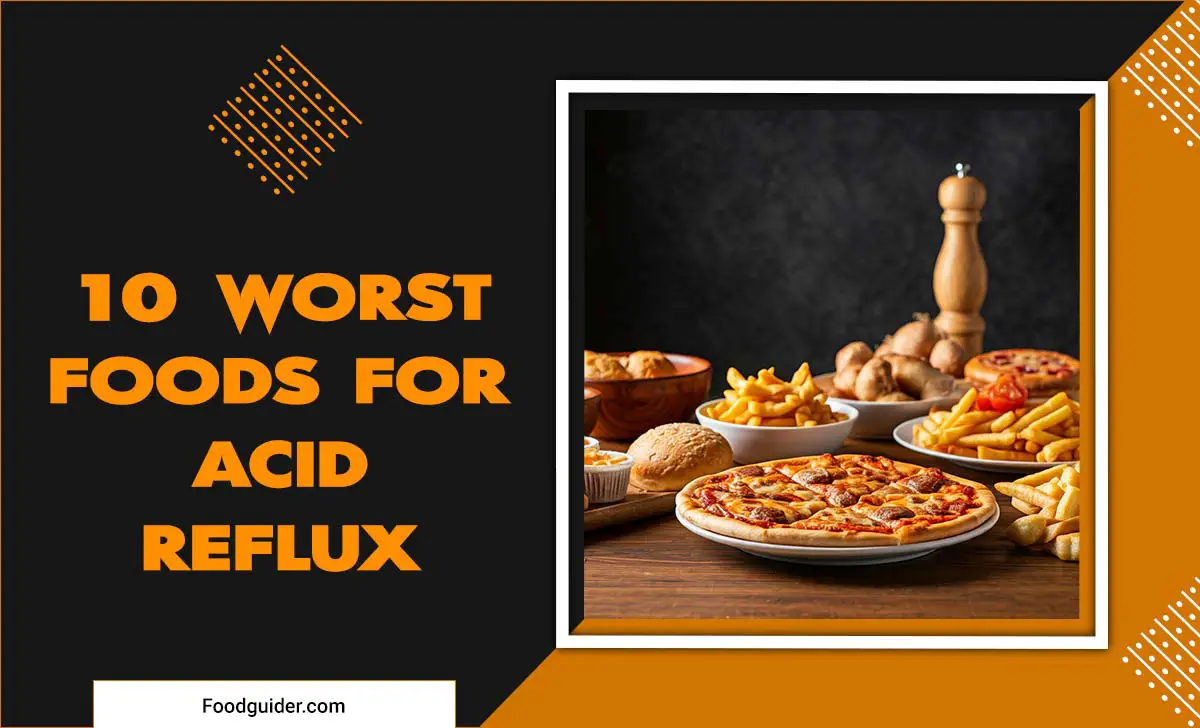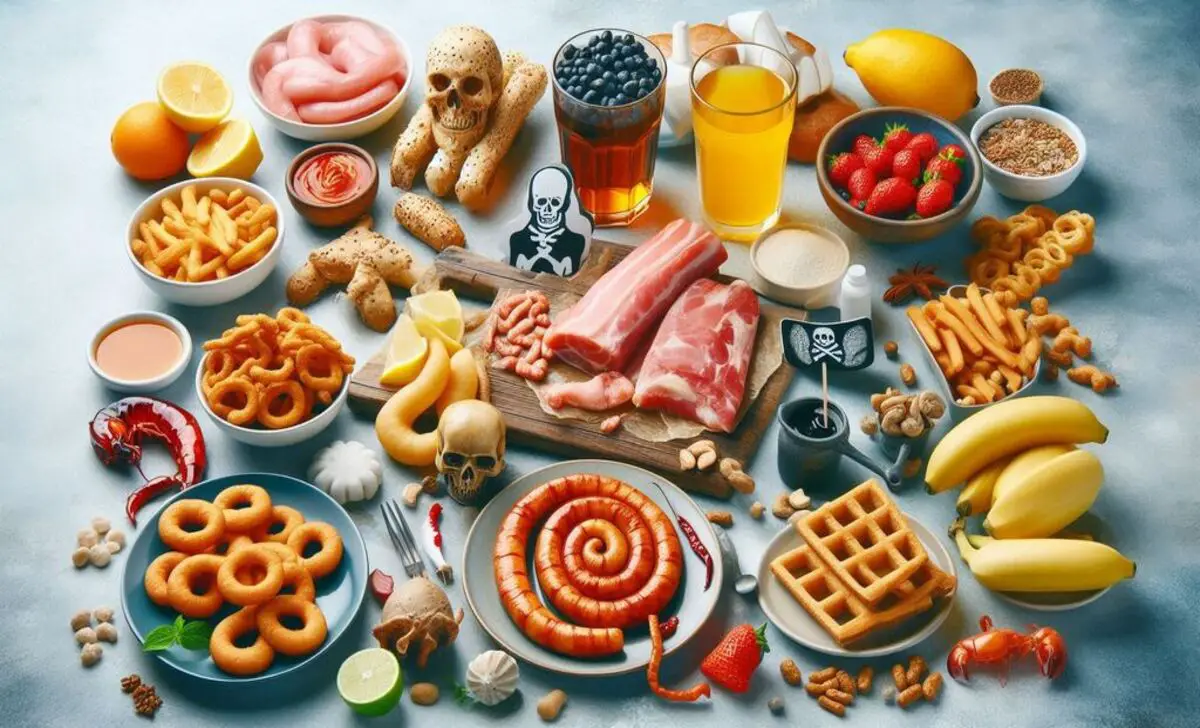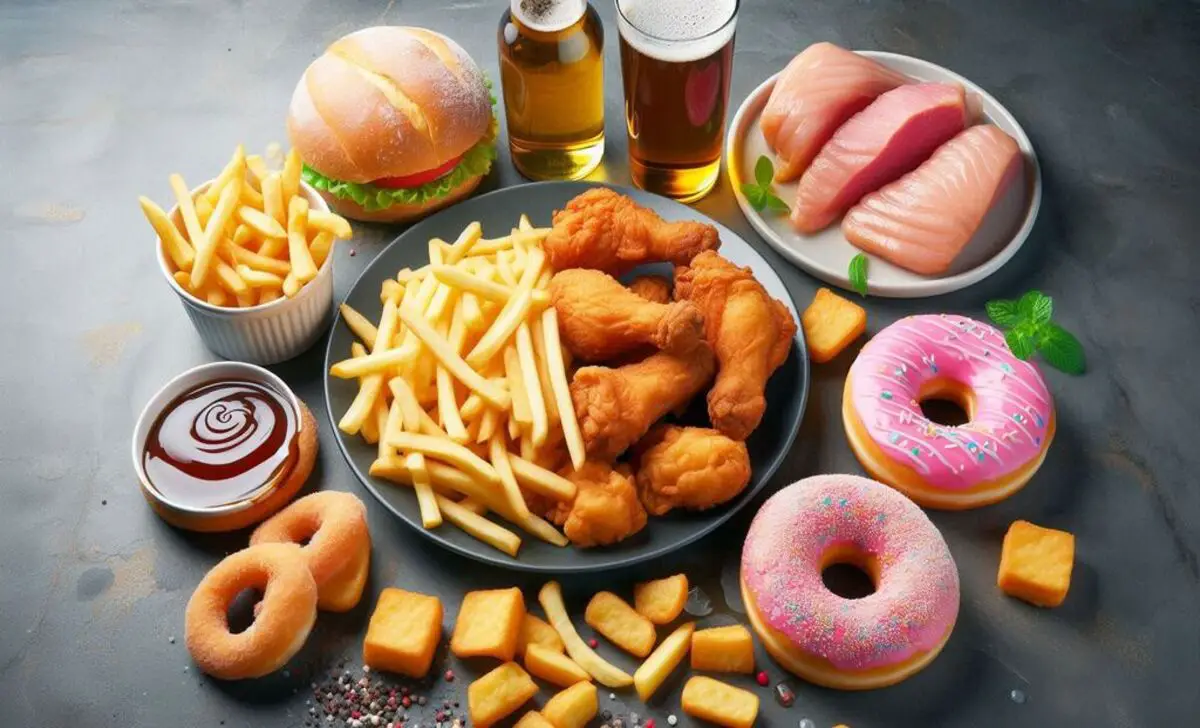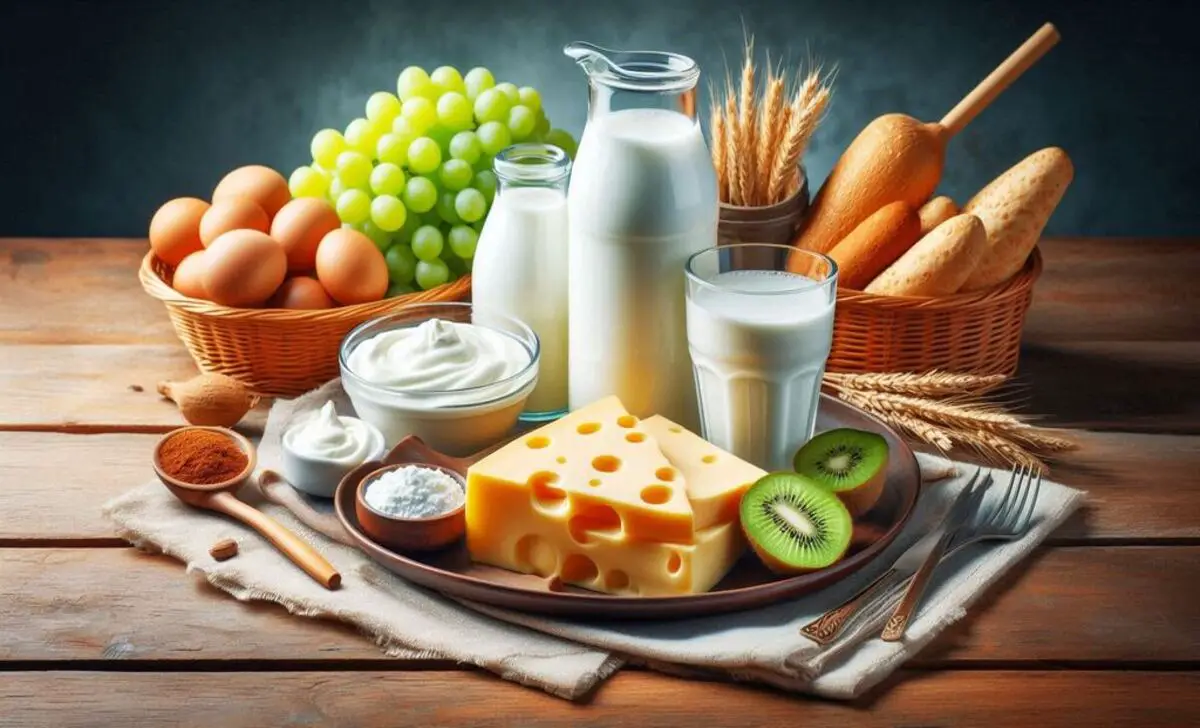Acid reflux, or gastroesophageal reflux disease (GERD), is a common health condition that occurs when stomach acid flows back into the esophagus. This backward flow irritates the esophageal lining and causes uncomfortable symptoms, such as heartburn and regurgitation.
Acid reflux can have many triggers, and certain foods are notorious for aggravating symptoms. These foods either increase stomach acid production or weaken the lower esophageal sphincter (LES). Here’s a closer look at the ten worst foods for acid reflux and why they might be making your symptoms worse.

10 Worst Foods For Acid Reflux

1. Spicy Foods
Spicy foods, such as chilli peppers, hot sauce, and curry, are major culprits for acid reflux sufferers. Capsaicin, the active compound in spicy food, can irritate the stomach lining and increase acid production. Spicy foods relax the lower oesophagal sphincter, allowing stomach acid to flow back into the oesophagus, leading to heartburn and discomfort.
2. Fried Food

Fried food, like French fries, fried chicken, and doughnuts, is high in saturated fat, which slows down digestion. This causes the stomach to produce more acid and delays the emptying of stomach contents. Fatty, fried foods often lead to a higher risk of acid reflux and GERD symptoms, including heartburn and an upset stomach.
3. High-Fat Foods
High-fat foods, such as fatty cuts of meat, cheese, and butter, are difficult to digest and cause the stomach to produce extra acid. This also contributes to relaxing the LES, allowing stomach acid to reflux into the esophagus. Diets high in saturated fat can increase the frequency and severity of GERD symptoms.
4. Carbonated Drinks

Carbonated drinks, such as sodas and sparkling water, can lead to bloating and increased pressure in the stomach, which can force acid into the esophagus. The bubbles in these drinks expand in the stomach, weakening the LES and contributing to reflux symptoms.
5. Chocolate
Chocolate contains both caffeine and a compound called theobromine, both of which can relax the LES. Additionally, chocolate is high in fat, which can slow digestion and increase acid production, making it one of the worst foods for those with acid reflux.
6. Citrus And Acidic Fruits

Citrus fruits like oranges, lemons, and grapefruits are high in citric acid, which can directly irritate the lining of the esophagus and increase stomach acid production. Acidic fruits are well-known trigger foods for people with GERD or chronic acid reflux, and consuming them can worsen heartburn symptoms.
7. Tomato-Based Foods
Tomatoes and tomato-based foods, such as pasta sauce, pizza sauce, and ketchup, are naturally acidic and can irritate the esophageal lining. This makes them particularly problematic for those with acid reflux or GERD symptoms, as they increase acidity in the stomach.
8. Alcohol

Alcohol, especially wine and beer, is acidic and can relax the LES, allowing stomach acid to flow back into the esophagus. Alcoholic beverages can also increase stomach acid production, leading to more severe reflux symptoms and irritation of the esophagus.
9. Caffeine
Caffeinated beverages like coffee, tea, and energy drinks can increase acid production and relax the LES. Caffeine also stimulates acid production in the stomach, making it a common trigger for reflux disease. Limiting caffeine intake or choosing decaf options can reduce the frequency of heartburn symptoms.
10. Dairy Products

Dairy products, especially full-fat options like whole milk, cheese, and cream, are high in saturated fat, which can slow down digestion. This delayed digestion process increases the likelihood of acid reflux and GERD symptoms, especially when consumed in large quantities.
How To Manage Acid Reflux With Diet Changes
Incorporating certain lifestyle changes can also significantly help in managing GERD symptoms. Here are a few tips:
- Opt for Smaller Meals: Eating smaller meals reduces the pressure on your stomach and LES, minimizing the chance of acid reflux.
- Avoid Trigger Foods: Identifying and avoiding your specific trigger foods can lessen your acid reflux symptoms.
- Eat Earlier: Avoid eating close to bedtime, as lying down on a full stomach increases the risk of acid rising into the esophagus.
- Incorporate a GERD Diet: Including foods that are low in acidity and fat can soothe symptoms. Non-acidic vegetables, lean proteins, and whole grains are often well-tolerated.
- Avoid Carbonated Drinks: Replace carbonated drinks with still water or herbal tea to avoid bloating and discomfort.
If lifestyle changes and diet adjustments are not effective, a healthcare professional may recommend medication to reduce acid production or suggest other treatment options.
Conclusion
Managing acid reflux involves making dietary adjustments and being mindful of the types of foods that can exacerbate symptoms. Avoiding high-fat, spicy, acidic, and carbonated foods can help alleviate discomfort and reduce episodes of reflux. By implementing these strategies, people with acid reflux can experience significant relief and an improved quality of life.
Frequently Asked Questions
1.What Foods Trigger Acid Reflux Symptoms The Most?
Spicy foods, high-fat foods, acidic fruits, and carbonated drinks are common triggers for acid reflux symptoms as they relax the LES and increase stomach acid.
2.Can Acid Reflux Be Treated With Diet Alone?
For some people, dietary changes and avoiding trigger foods can effectively manage symptoms. However, those with chronic acid reflux, or GERD, may require medication alongside dietary adjustments.
3.Are There Foods That Help Reduce Acid Production?
Yes, foods like oatmeal, non-citrus fruits, leafy greens, and lean proteins tend to produce less acid and can help alleviate acid reflux symptoms.
4.Is Heartburn The Only Symptom Of Acid Reflux?
No, acid reflux symptoms can include regurgitation, a sour taste in the mouth, difficulty swallowing, and even chronic cough in addition to heartburn.
5.Can Acid Reflux Lead To More Severe Health Conditions?
Chronic acid reflux can increase the risk of complications like Barrett’s esophagus, a condition that raises the risk of esophageal cancer.